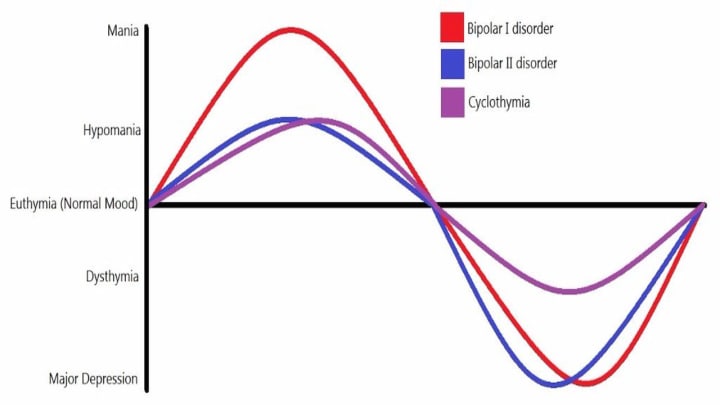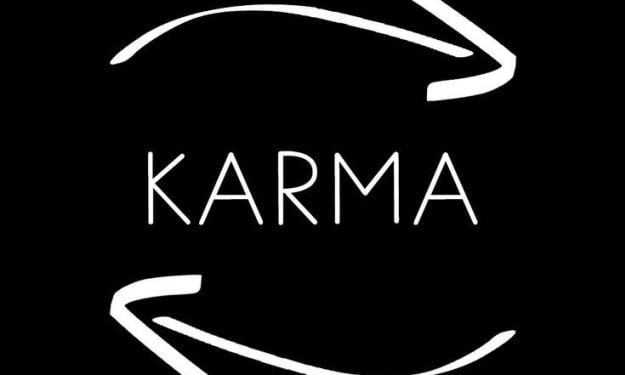We Can ALL Be Winners Despite Our Diagnosis
As Long As We Remember: We Control IT, Not The Other Way Around!

"But I don't know WHY I feel this way. Do you think I could be bipolar or something?"
That's the first question I asked my counselor when, years ago, my life was full of inexplicable ups and downs. Here's what I took away from that:
When we first wonder if our actions and moods could mean we're bipolar, get to a counselor quickly—whether by phone or, better yet, in person.When we talk to him or her, we shouldn't try to sugarcoat our thoughts, feelings and actions. This is one time we need to be completely outfront and honest with him/her. They're there to help; they're not going to lock us away in some "psyche ward" or anything like that. Tell them completely about your symptoms and ask to be checked for bipolar disorder. Once you've gotten your diagnosis, be sure to inform your family members and ask for their help and understanding.
Now, there are four categories of this mental scourge:
- Bipolar I disorder involves periods of severe mood episodes from mania to depression.
- Bipolar II disorder is a milder form of hypomania (periods when we feel energetic and upbeat) that alternate with periods of severe depression. In other words, we may feel energetic and happy but, when we cycle back into depression, it's rougher and lasts longer.
- Cyclothymicdisorder is like Bipolar I, but for shorter periods of both mania and depression.
- "Mixed features" is the diagnosis for those who have symptoms of both manic/hypomanic and depressive episodes at the same time and feel the effects of both.
Some psychiatrists also include dysthemia, or persistent depression, as part of the bipolar group but, as it has no corresponding highs at any level, this is generally seen as a separate diagnosis.
At the bottom of this article is a diagram explaining how these various levels work.
Our doctor might prescribe different kinds of medications, including mood stabilizers, antidepressants, and/or anti-psychotic drugs. These should be taken strictly according to doctor's orders (we must never miss a dose. If you do, even my accident, call your doctor or psychiatrist immediately and ask him how and when you should take the next one. And never take too many; overdosing can not only kill you under normal circumstances but, for bipolars, it makes the disorder 100% worse!). Above all else,
STAY AWAY FROM DRINKING OR ILLEGAL DRUGS AT ALL COSTS!
Now, we're not talking about those that are prescribed and taken according to our doctors' orders; we mean illicit drugs like heroin, marijuana, meth and the like.
Ask a family member of friend for support. They can help you keep up with your appointments and medications.
Talk therapy can also help us control stress and recognize our symptoms sooner.Another type of therapy (known as cognitive behavioral therapy) helps us find good ways to handle the negative thoughts that come with depression.
If there's one point that's often overlooked in bipolar counseling it's the fact that bipolars are prone to become victims of impulsive behavior. In doing that, we "throw caution to the wind" and act or speak without thinking (or even caring) about the fallout. For example, we might go on wild spending sprees, curse or yell at people for nothing, become sexually promiscuous, or go on drinking/drug binges. When we're in a manic phase, these impulses are almost celebratory because we feel so good; in a depressive stage, the impulses often occur because we're so desperate to find a way out of depression that we'll try ANYTHING.
Here are some of the signs of impulsivity:
We want something now, not later. So, we act without considering the consequences.
- We don’t think about the future carefully, or at all, and act before we plan.
- We act without discipline. We have poor follow-through, get bored fast, and give up easily.
- We crave excitement and have an intense need for the positive feelings associated with risky actions. We act without regard to consequences.
Sometimes, those who are having a tough time dealing with their bipolar attempt (and often, tragically, succeed) in suicide. Others try to deal with it by "self-punishment"—namely, cutting or hurting themselves.
IF YOU EVER CONSIDER SUICIDE OR CUTTING YOURSELF, DO ONE OR MORE OF THESE IMMEDIATELY:
- Tell someone who can help you right now.
- Call your mental health professional.
- Call your doctor.
- Call 911 or go to the emergency room.
- Don't be alone! If nothing else, visit some friends (I mean in person, not by phone!), go to a store, a restaurant or somewhere that people frequent. You'll not only see some interesting folks, but you're less likely to do anything to yourself.
THE GREAT GIFT OF “TODAY”
A while back, I met a friend of mine at the supermarket. He looked and acted seriously depressed. He said there wasn't anything to look forward to in his life anymore: he was behind in his bills, had lost his job and his wife, and felt completely defeated. Sure, I felt for him but—"nothing to look forward to"??
Look—let's take this in order, okay?
First: you woke up this morning. Consider the alternative to that! You could've died in your sleep last night—but you didn't! So, you're (a) seeing the dawn, (b) hearing birds outside your window, (c) maybe catching the aroma of fresh, morning coffee as it's brewing.
Secondly: you're free to go outside to get your paper, turn on morning music, check some talk show on television, and move around the house/yard/street/stores, etc. There are thousands who are in jails or prisons and can't do that—or hospital rooms, confined to beds right now!
Thirdly, you have hundreds of minutes ahead of you—and all of them unused and just waiting for you to fill them up with something good. You've got the power to do that, you know!! Look at your arms for a second: Is anyone "twisting" them to do otherwise?
Fourthly: I know you have things that are hurting you, but—well, let me ask this: Do you remember anything bad that happened to you on this day in, say, 1975? Okay, how's that affecting you now? Does it still make you want to cry, or tear someone's lungs out? Or have you finally gotten over it? Well, I GUARANTEE that you'll survive these heartaches, too!
And the way to do it? Remember those "unused minutes" I talked about? Fill them with productive action that will provide positive results! That includes seeing your counselor if necessary. Why let something—or someone's actions—control you? And don't forget this little wonder we call the internet! Use it to regain a step or two, search for a new job, or make new friends. You can even Google® whatever's depressing you and find loads of different and productive ways to help you win over the situation(s)!
So don't ever overlook the magnificent gift of today that we've been given!
This can be the day that the pendulum finally starts swinging in your direction again!
BELIEVE IN YOURSELF—SEE YOUR COUNSELOR IF YOU HAVE TO—TAKE YOUR MEDS FAITHFULLY (but only in the dosage prescribed)—RE-READ OUR ARTICLES ON BIPOLAR DISORDER. I'll list them all in our next article.

About the Creator
Chuck Hinson
Chuck Hinson is a freelance writer, entertainment publicist, blogger and record promoter.






Comments
There are no comments for this story
Be the first to respond and start the conversation.